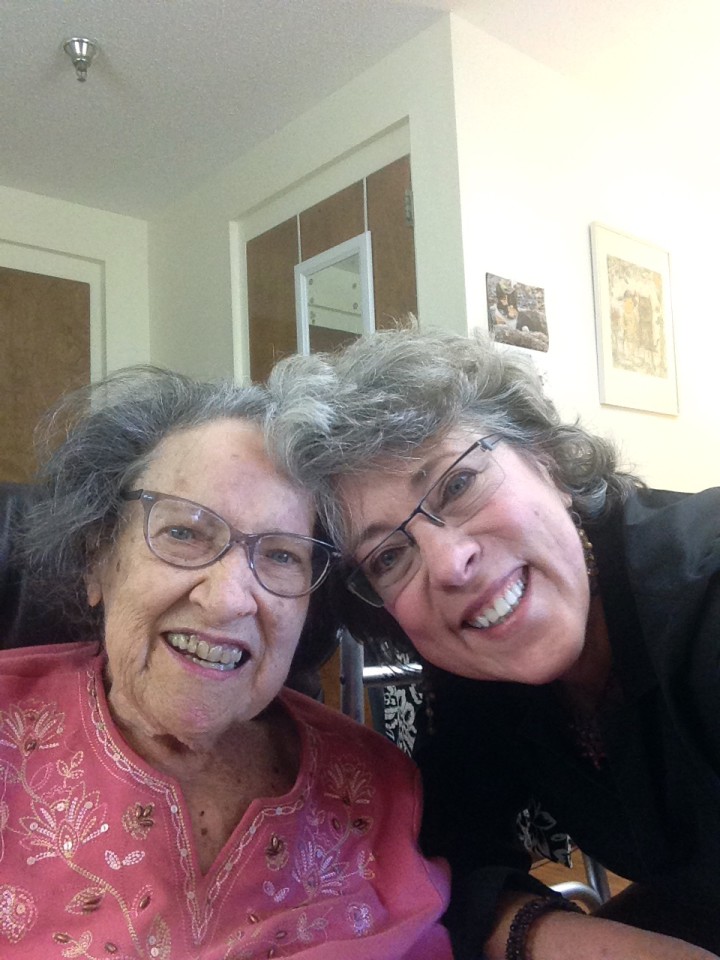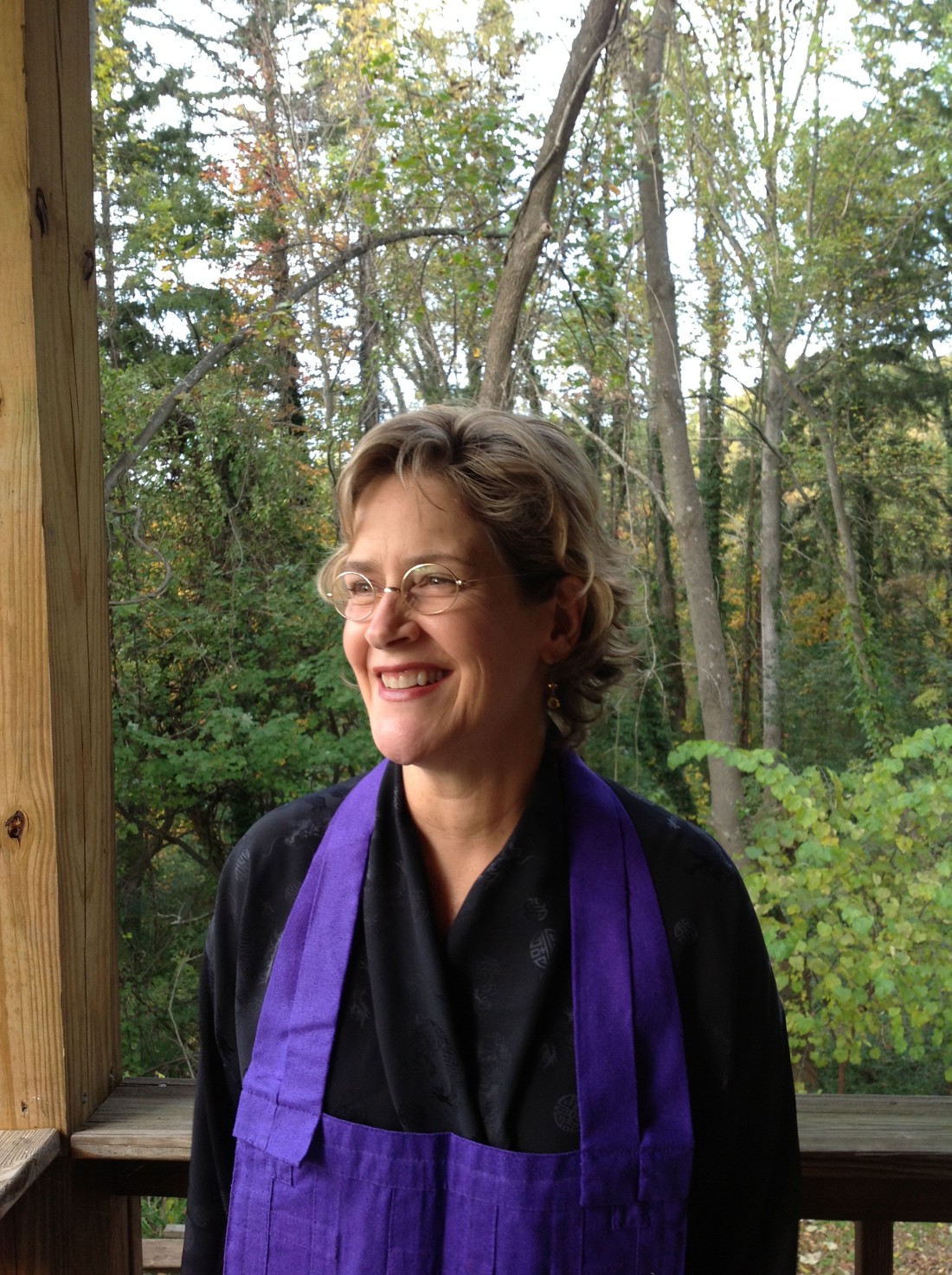Asheville resident Sharon Evans, 66, had an unexpected brush with death five years ago. “I was cooking dinner for my brother, who was going to come and visit me for a couple of days. He found me sitting in a chair saying, “I’m not doing well,” Evans says. “I don’t remember any of that.” Evans subsequently spent six days in a coma as a result of a severe allergic reaction to medication.
Although Evans had regularly confronted the issue of end-of-life care decisions with patients in her 30-year career as a hospice nurse, she says her own death had not been on the forefront of her mind. But at 42, she notes, she had the foresight to put her end-of-life wishes in writing, which turned out to be useful when her emergency occurred. When she was in a coma, the execution of her wishes became the responsibility of her health care power of attorney, who was not her brother.
“My brother, he doesn’t like to talk about end-of-life decisions — he didn’t know what I wanted, because he didn’t want to talk about it,” Evans recalls. “So I had chosen a friend [for my health care power of attorney] that knew what I wanted and agreed that she would take over.” Evans harbors no illusions about what might have happened if she had not had her advance directive in place. “My brother would have wanted everything done,” she says. “It could have been disastrous and not my wish.”
Most Americans lack Evans’ preparedness when it comes to planning for end-of-life care. According to a survey by Home Instead Senior Care, 75 percent of seniors feel more comfortable planning for their funerals than their end-of-life health care. The survey found that although 73 percent of seniors have made financial plans for their future, only 13 percent have planned financially for long-term care that may be necessary in their final years. To justify the gap in their planning, these seniors stated that they were still in good health and that they believed their loved ones would make preparations for them.
Devin Kelly, gerontological nurse practitioner at Asheville’s Charles George VA Medical Center, says his patients tend to avoid the difficult conversation of mortality until the last moment. “The majority of folks don’t think about it or plan it until the rubber hits the road and something bad happens, when they have a major stroke or the dementia has gotten so bad that they’ve burnt through all their family members and caregivers and they have to get placed,” he says.
“Folks are really reticent to address end-of-life needs,” he continues. “Adult children see their parents [and think] ‘No, they’re not gonna die — they’re gonna keep going forever.’”
“It doesn’t have to be this way,” Kelly adds. “There are resources out there for everybody that we can all use way before we get to older age.”

I don’t want to talk about it
Black Mountain resident Joan Hall Weaver says that for the last 20 years she has had to confront the uncertain territory of navigating end-of-life decisions with her aging mother, Betty, who was at first reluctant to engage in end-of-life planning.
But after her mother had several unexpected falls, Weaver continues, she moved her from Ohio to Western North Carolina to assume closer watch over her care. At that point, Weaver enlisted the help of Asheville’s CarePartners, which set up a meeting with Weaver and her mother to make a plan for long-term health care.
Her mother didn’t welcome that initial conversation, says Weaver. “My mother was very resistant. At the intervention, [she] was not at all happy. It’s very tough for folks to face that they’re going to die. It was very tough for her to face the fact that she couldn’t do what she used to be able to do.”
Caroline Yongue, director of Asheville’s Center for End of Life Transitions and a Buddhist minister, says she sees a cultural hesitancy to engage in a conversation about death. “In the U.S., we’re so death denying. What I discovered was that nobody is prepared,” she continues. “So that’s when we created the classes to help people prepare for the end of life, for how they wanted their body to be treated spiritually after that last breath.”
The center offers two-day workshops which provide information and instruction about navigating advance directives, including a living will and health care power of attorney. The importance of these workshops, Yongue says, lies in arming people with honest and accurate information. “[When] they have enough information, they feel really comfortable to make decisions,” she says. “[I] provide support for them to ask questions and get comfortable with it. Because if you give them enough information, there’s no more fear. The ‘what ifs’ kind of drop away.”
Ready resources
Kate Barr, general manager at Home Instead Senior Care in Asheville, says the Compose Your Life Song initiative offers a free educational program and road map for one of life’s most difficult conversations. By spurring discussion about end-of-life care, financial affairs, insurance and funeral planning, the program seeks to empower senior citizens to live out their final years having made empowered and informed choices, she adds. “Seniors feel relieved knowing their families are aware of their wishes for their final years,” she says, “and their adult children also report feeling relieved and more confident. It has been wonderful to see families have important conversations before it is too late.”
Kelly points his patients toward the website Plan Your Lifespan, which is designed to help with end-of-life planning. “[It] walks you through everything you need to think about, including hospitalizations, where you would go, your local pharmacy,” he says. “You can put all of your information in there and make a plan. It really talks about all the things that aren’t usually covered, beyond an advance directive.”
Kelly also suggests using the MOST (Medical Orders for Scope of Treatment) form, which offers providers more detail about a patient’s wishes than an advance directive, addressing issues such as intubation, cardiopulmonary resuscitation and feeding tubes.
“What if you still have a heartbeat and you’re breathing, but you’re just a whole lot sicker,” Kelly asks. “Do you still want to go to the hospital, to the ICU, do you want to be on life support, or do you want to just stay at home and get your comfort needs met? And the form addresses this — it’s all on one page, like a takeout menu almost.”
But Evans stresses that any measure is only as good as the hands it lands in. Advance directives and any other wishes should be communicated to the primary care physician, local hospital and health care power of attorney, she says.
As a result of her brush with death, Evans says she now encourages people to face end-of-life conversations head-on. She recommends that they make arrangements for end-of-life care “as young as possible. And I know people aren’t going to listen, because ‘it’s never gonna happen to me’ — but I wish they would. I really wish they would.”
MORE INFO
Center for End of Life Transitions
ceolt.org
Asheville VA Medical Center
asheville.va.gov
Home Instead Senior Care
homeinstead.com
CarePartners
carepartners.org
Questions about advance care directives
sosnc.gov/divisions/advance_healthcare_directives




Before you comment
The comments section is here to provide a platform for civil dialogue on the issues we face together as a local community. Xpress is committed to offering this platform for all voices, but when the tone of the discussion gets nasty or strays off topic, we believe many people choose not to participate. Xpress editors are determined to moderate comments to ensure a constructive interchange is maintained. All comments judged not to be in keeping with the spirit of civil discourse will be removed and repeat violators will be banned. See here for our terms of service. Thank you for being part of this effort to promote respectful discussion.